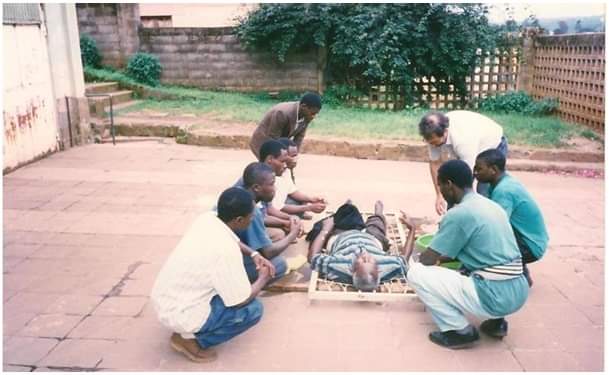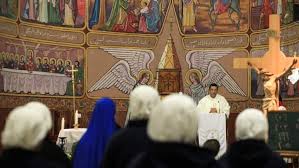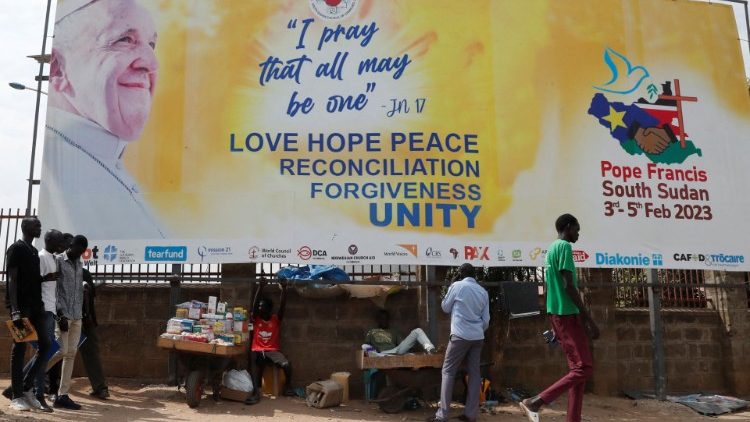Why I got involved in the movement that cares for victims of human trafficking
Throughout the ages, vulnerable people have been among us. God, in disguise, is present in the form of the poor. Today, we believe that he appears in the form of victims, including those ensnared by human trafficking. It is this hidden divinity that unites us all.
My journey into the movement against human trafficking has had a long history. I was once the pastor of a poor rural parish, where I met many poor children. From that parish, I spent 14 years teaching Catholicism at a state university and then nine years as executive secretary of the Indonesian Bishops' Conference for Interreligious Dialogue. I also spent six years in the Crisis and Reconciliation section of the bishop’s office.
Throughout my time with the Indonesian Bishops' Conference and in the Crisis Centre, I observed that interfaith dialogue often centred on the discourse of harmony. I sought to complete these conversations by collaborating with people of diverse religious backgrounds. In my research, I have discovered that forced migration and human trafficking victims affect people of all religions, and in Indonesia, most prominently Muslims and Christians.
The global scale of human trafficking is staggering, with over 40 million victims worldwide and one in four of them being children. Shockingly, the United Nations reveals that human trafficking ranks second only to drug trafficking in illegal revenue generation.

Participants of a peace rally carry posters reading 'Stop Human Trafficking' at Jakarta.
My current
mission, working with migrants and victims of human trafficking, carries a dimension
of dialogue with Islam. Beyond that, Christologically, we feel united by the
same Person, whom Islam calls Isa Almasih, and for us, Jesus Christ. He hides
behind the poor, the miserable, and the suffering, as in Matthew 25:40:“The King will reply, ‘Truly I
tell you, whatever you did for one of the least of these brothers and sisters
of mine, you did for me.’” And in the Sahih Muslim, Hadith 2001: No 4661 and
1172: “Then Allah SWT said, 'Do you not know that my servant so-and-so asked
for a drink and you did not give him a drink? Do you not know that if you had
given him a drink you would have been rewarded by Me?’"The God who
hides is the reason why I pay attention to the victims alongside my Muslim
brothers and sisters.
As a Jesuit who is encouraged by the expression sentire cum ecclesia (in one mind with the Church), I am moved by the current supreme leader of our Church, Pope Francis, who has paid great attention to this issue of human trafficking, even establishing the Integral Human Development dicastery, which includes a section on Migrants and Refugees. His commitment is evident in the publication of his Pastoral Orientation on Human Trafficking.

Further, in Evangelii Gaudium, Pope Francis laments: “Human beings are themselves considered consumer goods to be used and then discarded. We have created a ‘throw away’ culture which is now spreading. It is no longer simply about exploitation and oppression, but something new. Exclusion ultimately has to do with what it means to be a part of the society in which we live; those excluded are no longer society’s underside or its fringes or its disenfranchised–they are no longer even a part of it. The excluded are not the ‘exploited’ but the outcast, the ‘leftovers’” (Evangelii Gaudium 2013, 53).
In his introduction to the document on Human Fraternity for World Peace and Living Together, during his apostolic journey to the United Arab Emirates in 2019, Pope Francis reiterates how our faith impels us to recognise in the other a brother and sister to be supported and loved. “Through faith in God, who has created the universe, creatures and all human beings (equal on account of his mercy), believers are called to express this human fraternity by safeguarding creation and the entire universe and supporting all persons, especially the poorest and those most in need.”
The Universal Apostolic Preferences of the Society of Jesus also underscore, among others, solidarity with marginalised and excluded populations, including those who are economically disadvantaged, refugees, migrants, and those suffering from social injustices. Jesuits strive to stand with these communities, advocate for their rights, and work towards a more just and equitable world.
Eduardo Verástegui, reflecting on his film “Sound of Freedom”, powerfully states: We are living in the moment of human history with the greatest number of slaves… and we cannot remain silent.”
Throughout the ages, vulnerable people have been among us. God, in disguise, is present in the form of the poor. Today, we believe that he appears in the form of victims, including those ensnared by human trafficking. It is this hidden divinity that unites us all.
May we find You, the hidden one.
Ignatius Ismartono SJ is the Director of Sahabat Insan (Friend in Humanity), an apostolate for Indonesian migrant workers and victims of human trafficking. He may reached at [email protected].



